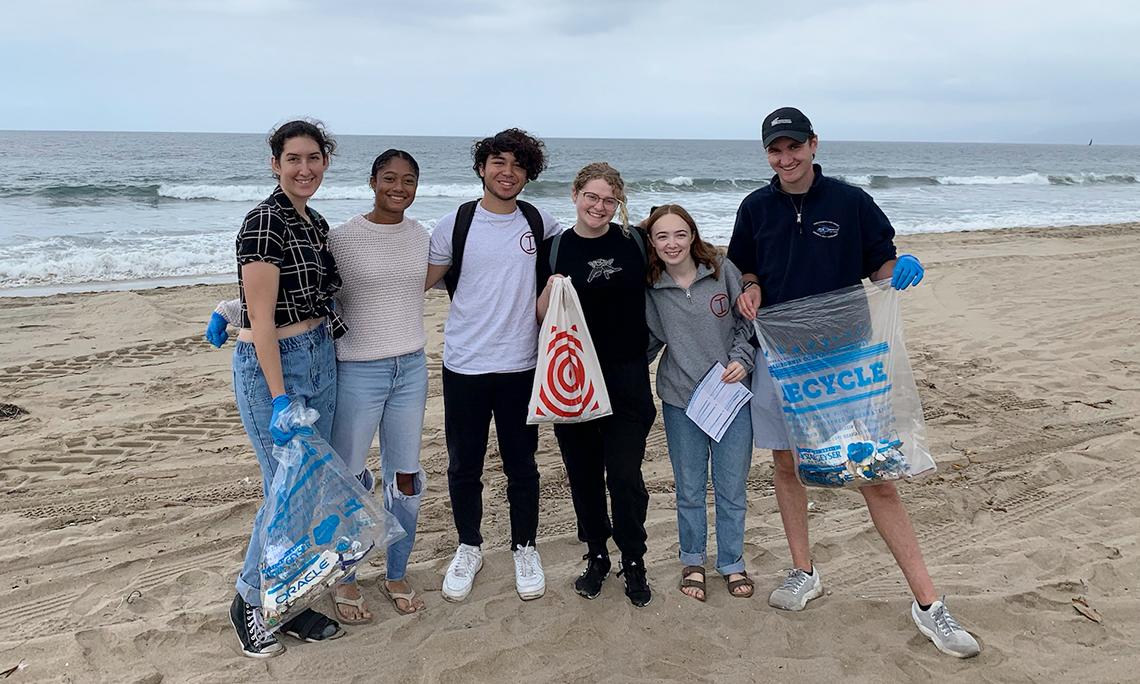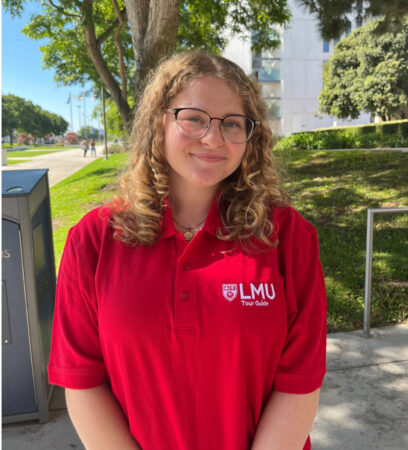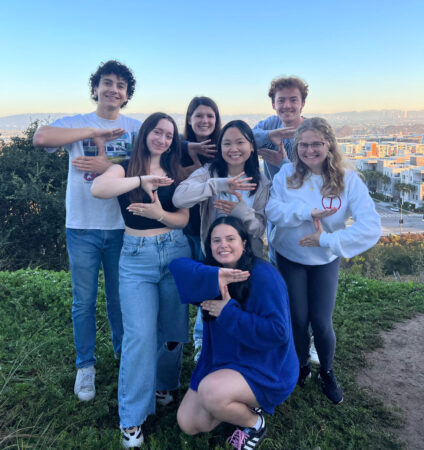

Service ignited a spark in Elisabeth Gothelf ’24, a theatre arts and sociology double major with a minor in philosophy, long before her time at LMU, but it was learning about the service organization community on LMU’s campus that ignited her passion for social justice. This fall she served as the social justice chair for the Ignatians Service Organization and as a tour guide, now she’s sharing her passions for social justice with the entire LMU community.
For Gothelf, the Ignatians Service Organization represents a community of passionate and grounded people. “We are a group of people that have really become social justice warriors and I couldn’t be happier about my decision to join,” said Gothelf. “Being a part of the Ignatians Service Organization has made my LMU experience so much brighter.”
Service was at the heart of why Gothelf joined the LMU community from the early days of her college search. While she was taking her campus tour, she remembered hearing how many service hours per year students serve in the local community.
“I wanted to come to LMU to be a part of the service organization community,” said Gothelf. “I took my tour on-campus and heard students have done over 200,000 hours of service per year even though there’s no service requirement. And that literally lit my soul on fire because I’ve been doing service with my high school and my church since I was a young child, like I used to do things like mission trips and at my high school we called them ‘do something days’ but I wanted to see what service could look like on an individual level and grapple with what it looked like with faith, not including faith and just doing it for others.

“I went through the whole service organization recruitment process and Ignatians Service Organization really stuck out to me because of the human rights portion. I didn’t want to limit myself to one specific type of service and the Ignatians has a wide variety because we do so many different things even throughout COVID we kept up with tutoring, which isn’t one of our usual placements but it was nice to see during the pandemic that the organization was keeping up serving where it could.”
In her role as a social justice chair, she has been to educate their members on the current social justice issues relating to the organization’s focus. “In the Ignatians Service Organization, our focus is on social justice and human rights issues, and I have been able to teach members of our organization about these issues and how they pertain to our placements and how we can incorporate restorative justice in how we treat others at our placements and LMU,” said Gothelf. “My advice to future service organization members would be to put themselves out there and go for what they are passionate about, I’m sure there’s a way you can apply what you are passionate about to what service organizations are doing, many of the service orgs allow students to do a service take”
Last semester the Ignatians Service Organization hosted “Restorative Justice Week” on campus to showcase both what restorative justice is and how it could have a broader impact on the campus community at LMU. “Restorative Justice Week was really important to me this year because I really wanted to show what LMU is already doing and what we could be doing as individuals to promote a restorative culture because everyone deserves to be heard and understood on a day-to-day basis. And especially when something goes wrong within a community, it’s good to have members of the LMU community who can hear everyone out and make sure that things get addressed in a restorative way so people aren’t afraid when something goes wrong that they won’t be exiled from the community, everyone deserves a second chance and to be treated kindly and respectfully in every situation.”
Restorative practices have come alive for Gothelf and other Ignatians members through the placements they serve each week, like the Guadalupe Homeless Project, Francisco Homes, L.A. LGBTQ Center, and beach clean-ups where they partner with Heal the Bay coastal communities.
“The one I go to the most often and I get the most excited about is the Guadalupe Homeless Project because we have been serving the same familiar men each week we go to visit,” said Gothelf. “They welcome us in with open arms, and it’s exciting because we just get to show up and do exactly what they need us to do depending on the day, things like cooking, cleaning, setting up, talking with the men at the project or sitting down and having a meal with them. It’s showing up and being what they need you to be because, in any community, you bring unique talents and facets to the table, but you can’t be helpful unless you are addressing their needs already. So, learning to come in with a listening ear and an open heart has been beneficial. We’re uplifting these communities into what they already are and what they want us to do. It’s perfect to come in with the mindset as a helper, and that can help me in the future because it changes the mindset of how I approach problems and new opportunities.”



